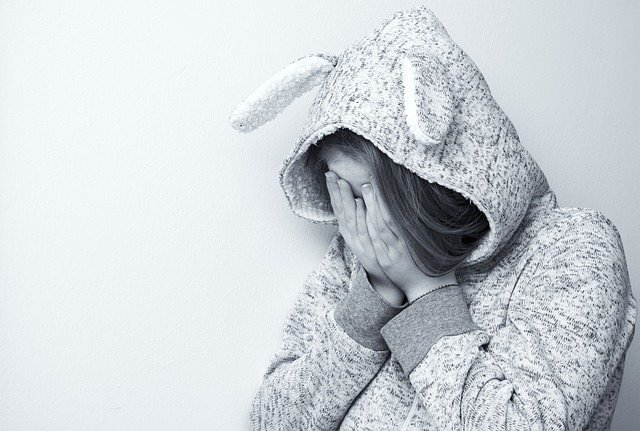The pain of losing what we hold dear

Life has it’s ups and downs, and a serious downer is when we lose something we hold dear. It could be the loss of something we own, or of a loved on. Something in our lives is gone. Something that we value is missing.
When something goes missing by our own fault of misplacing it, or forgetting it somewhere and we can’t reclaim it, it’s upsetting enough. We screwed up and we lost something useful, or something that we were attached to for some reason.

Source
Sometimes we lose something that can’t exactly be replaced itself. Maybe you have a favorite pair of pants or shoes. Those items can be replaced, but they cost more money than losing a less costly object. It huts a bit more when we lose something that costs more.
But, maybe those pants or shoes were unique and aren’t being made anymore. You can get other pants or shoes, but not those pants or shoes. Now you didn’t only lose an item that will cost you more money to replace, but you lost something that held more value for you because they were unique and were favored over other pants or shoes you have. Other pants or shoes aren’t the same, they don’t cut it.
Now there is a deeper loss being felt. Losing something easily replaced has a minor level of annoyance, but losing something of deeper meaning to us personally will be more painful, and can even anger us.
Let’s say you have a hair brush that’s been handed down from mother to daughter, or a watch from father to sun, for one or more generation. If you would lose this, then it would be even worse. You could get another hair brush or watch, but it’s not the same. You might even be able to find the exact same one in some cases, but it’s not the same either.
The object that was passed down in the family holds a very special significance. It’s as if it’s imbued with something that makes it that much more meaningful, as if part of your family is in it. THe object is attached to a history of use by those who held a significant place in your life in the past or present. It’s a memento or memory to their existence.

Source
Of course, none of these loses is as hard to bear than the actual loss of something completely irreplaceable, like someone who we valued. A family member or friend that leaves and goes to live somewhere else is a disconnect and separation is hard to deal with. We have become attached to their presence in our lives. We have enjoyed their company, and now we can;t be with them anymore.
Worse than someone just leaving our geographical proximity to no longer be in contact with, is when someone leaves existence and dies. This is a great pain and loss to our lives. The grief can consume many who have trouble letting go and moving on.
When someone leaves our lives, we can sometimes feel some guilt. If they just left to go somewhere else, we can falsely think that it was because of us, or that we don’t matter enough in their lives for them to stay with us. A mother can tell her child that she doesn’t love her enough to stay. We can lash out to try to keep what we want. We can also find guilt or regret with not having spent enough time with someone before they died. We forgot to take advantage of their existence while they were there, and now they are gone.
Having something taken from us without our consent or against what we want is more painful than willingly letting go. If we give something to someone, we are choosing, and it might be a felt as a loss, but not as bad. The pain is reduced when we give to others something that we value.

Source
All these losses from our forgetfulness are very different from someone taking something away from us. If someone steals something we own, we feel violated. They harmed us by creating a financial loss. Having something stolen has a special kind of hurt, a strong anger. How dare they take something that wasn’t theres, and take it form me.
We get especially enraged when the item is of greater value. Someone stealing a nail clipper is a blip compared to someone stealing our favorite pair of shoes. Something more expensive has an even greater sting and anger to it.
A stolen bike costs us quite a bit. Especially if we have had the bike with us for a while and gains that certain quality of being familial to us. No other bike can replace it. We rode with it on journeys of distance, and it was with us in our life journey. Likewise, family heirlooms have that similar loss because of the object having spent time with us and our families, being imbued with some special quality from that alone.
Having something stolen is bad enough, but when that something is a someone, it’s worse. If our child is taken by authoritarian abuse of powers, that is a pain that is extremely hard to bear. CPS takes children from loving parents left and right, and they are often powerless in the courts to stop it. Grace injustices are committed in the name of “good”, all a veiled illusion to harm others.
We can also suffer someone being stolen from our lives when they aren’t a child as well. Someone can be murdered. They have been taken not only from our lives, but from existence. This had so many of the previous aspects all combined into one heavy-hitting trampling of our psychological structure. We are stolen from, heartbroken, shattered, and lost. How dare someone take our loved one from us. The rage of wanting them to pay can be strong.
A severe loss can have us seek revenge. We want someone to pay for hurting us. Sometimes it’s righteous, as consequences need to be applied to someone who steals from others. But sometimes our anger can lead us to foolishly harm others. Someone who leaves us romantically can result in actions of revenge to try to hurt them back.
Emotions can get the better of us and make our lives worse. We can’t change what happened. We can sometimes find justice and correct things going forward, as in getting custody of our child back, or making someone pay for their crimes. But, often we just have to move on. When we hold dear to something and lose it, we are trying to hold onto it after it’s gone. And that attachment is causing us to suffer.
This is why attachment is understood to be the root of much suffering. Part of ourselves was attached to something else. And when it’s gone, part of ourselves is gone. We lose part of ourselves when we become too attached or don’t let go when it’s gone. The way to regain ourselves is to rebuild ourselves from that loss, not stay attached to something that is gone and can’t be used to build who we are.